|
|
|
|
There are some obvious ways that climate change can be costly to municipalities, such as damage from destructive storms. But a team of researchers delved into the multiple ways that climate change creates fiscal hazards for cities and towns by looking at Florida, a state that has been hard-hit by climate change and faces a challenging future.
In a study, they found over half of Florida’s 410 municipalities will be affected by 6.6 feet of sea-level rise, and that almost 30% of all local revenues currently generated by these 211 municipalities come from buildings that are expected to be chronically flooded by the end of the century. “If cities don’t adapt, increasing damage from climate-driven disasters and sea-level rise will create a vicious fiscal cycle, eroding local tax bases and driving up services costs – which in turn leaves less money for adaptation,” they write.
Many people, like myself, began to learn more about the importance of antiviral drugs during the height of the COVID-19 pandemic. But the body itself can make antiviral molecules, writes University of Michigan biochemist Neil Marsh. He explains the science behind how antiviral proteins in cells respond to viral infections and work with the rest of the immune system.
You may have heard that Lego abandoned plans to build its iconic blocks from recycled plastic. A group of sustainability and supply chain researchers explains how Lego’s decision reflects how the most significant part of a company’s carbon footprint often lies in its supply chain, which may become more clear as carbon disclosure regulations take hold. “We may see more instances where well-intentioned sustainability efforts run into uncomfortable truths,” they
write.
Also in this week’s science news:
If there’s a subject you’d like our team of science editors to investigate, please reply to this email.
|

|
Martin LaMonica
Director of Editorial Projects and Newsletters
|
|
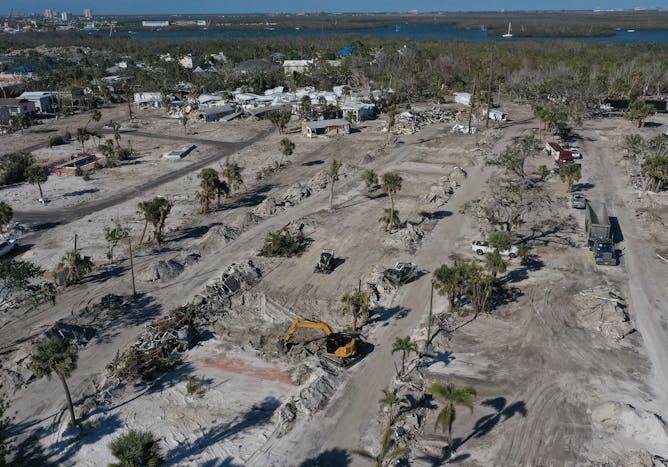
Crews clear lots of destroyed homes in Fort Myers Beach, Fla., in February 2022, four months after Hurricane Ian.
Joe Raedle/Getty Images
Linda Shi, Cornell University; Tisha Joseph Holmes, Florida State University; William Butler, Florida State University
A new study of Florida’s fiscal vulnerability to climate change finds that flooding directly threatens many local tax bases.
|
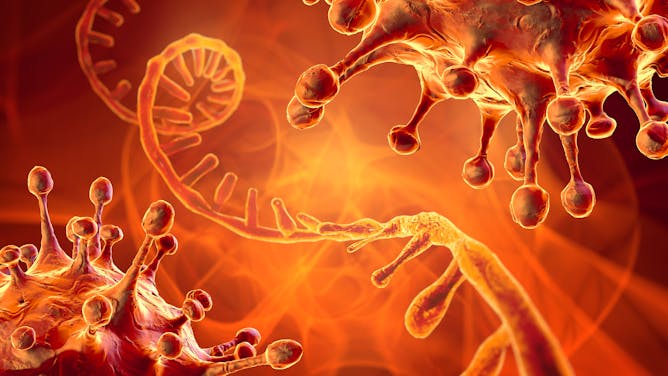
Blocking viruses from replicating their RNA is one way antivirals work.
CROCOTHERY/iStock via Getty Images Plus
Neil Marsh, University of Michigan
The human body has been making antivirals for eons, long before scientists did. A protein in your cells called viperin produces molecules that work similarly to the COVID-19 antiviral remdesivir.
|

Legos are designed to last for decades. That posed a challenge when the toymaker tried to switch to recycled plastics.
AP Photo/Shizuo Kambayashi
Tinglong Dai, Johns Hopkins University; Christopher S. Tang, University of California, Los Angeles; Hau L. Lee, Stanford University
Corporate supply chains are riddled with high, uncounted emissions, as Lego discovered. New regulations mean more companies will face tough, sometimes surprising, choices.
|
|
|
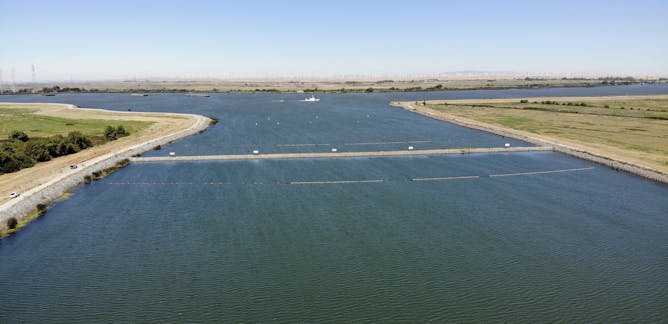
Holly Michael, University of Delaware
Saltwater intrusion is bad for human health, ecosystems, crops and infrastructure. Here’s how seawater can move inland, and why climate change is making this phenomenon more frequent and severe.
| |
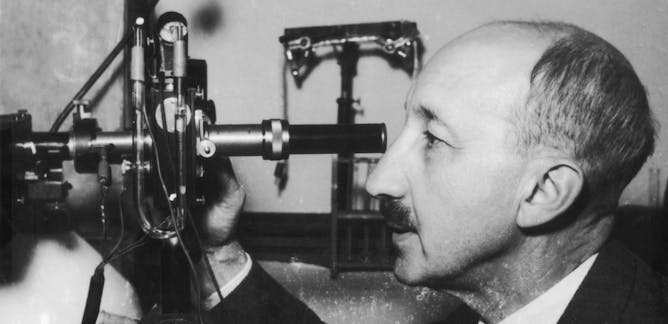
Artemis Spyrou, Michigan State University; Katharina Domnanich, Michigan State University; Sean Liddick, Michigan State University
Some Nobel Prize-winning ideas originate in strange places, but still go on to revolutionize the scientific field. George de Hevesy’s research on radioactive tracers is one such example.
|
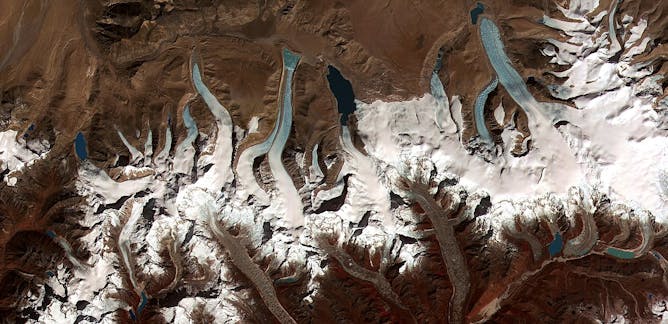
Brianna Rick, University of Alaska Anchorage
Alaska has at least 120 glacier-dammed lakes, and almost all have drained at least once since 1985, a new study shows. Small ones have been producing larger floods in recent years.
| |
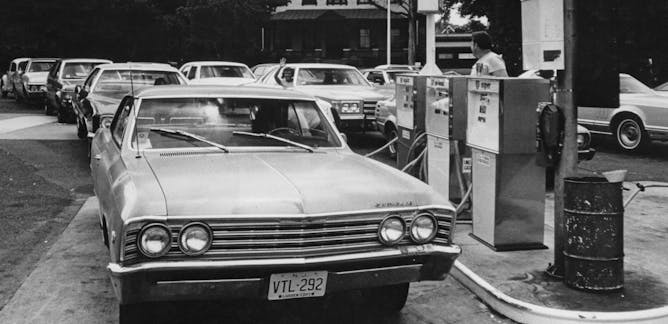
Jim Krane, Rice University; Mark Finley, Rice University
Russia’s 2022 invasion of Ukraine reprised the risks of energy weaponization, but the oil landscape today and energy security itself are changing.
|
|
|
|
|
-
Gurpreet Singh, Binghamton University, State University of New York
Balancing well is a whole-body experience that develops over time and takes practice to master.
-
Paul D. Terry, University of Tennessee
After a 14-year-old died doing a viral spicy chip challenge, many parents have called for more awareness about the risks of these challenges.
-
Emily Hemendinger, University of Colorado Anschutz Medical Campus
With our faces seemingly everywhere − from Zoom meetings to selfies − more people are developing anxieties about how they appear online.
-
Shannon Schmoll, Michigan State University
There’s a flurry of excitement every time a comet comes into view from Earth. But what are these celestial objects, and where do they come from?
|
|
|
|
|
| | |
| | |
| |
| |
| |
|
|
|